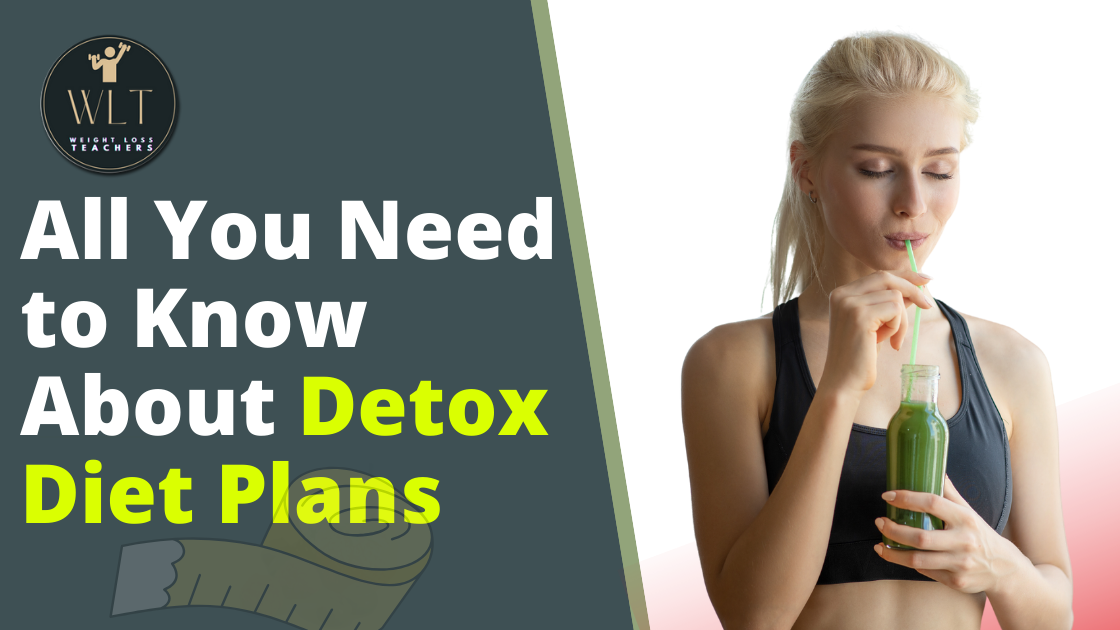
All You Need to Know About Detox Diet Plans
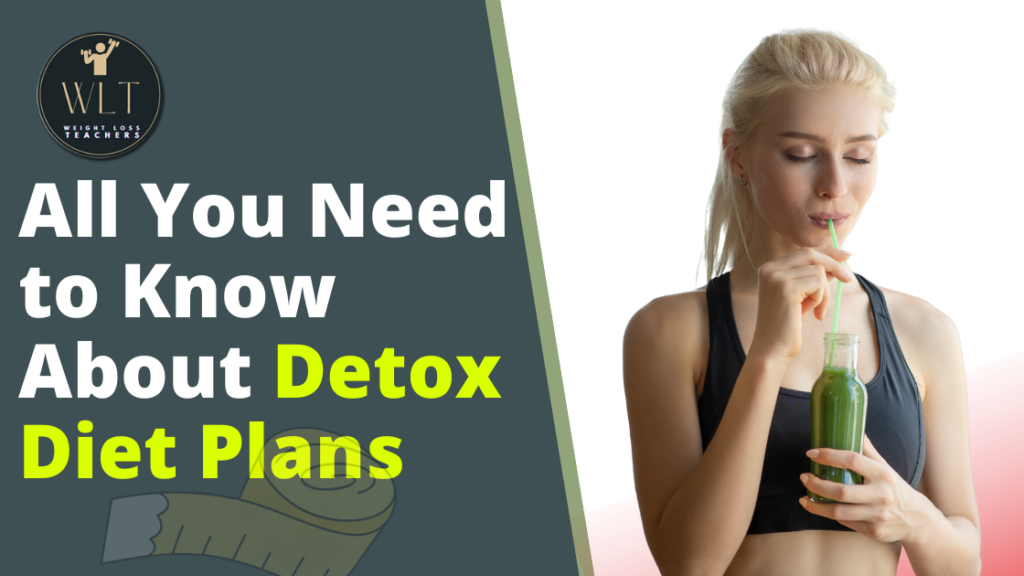
Today’s environment is filled with pollution, pollutants, and bad dietary options that can harm our bodies. A detox diet is a fashionable concept that promises to rid our bodies of toxins while also improving general health. But, exactly, what is a detox diet plan? Is it efficient, safe, and long-term?
Table of Contents
Introduction
We will answer all of your questions and teach you everything you need to know about detox diets in this thorough guide.
What is a Detox Diet?
A detox diet is a nutritional plan that tries to cleanse the body of toxins, improve digestion, and improve general health. A detox diet is based on the premise that by avoiding certain meals and beverages while increasing the intake of key nutrients, the body may expel toxic chemicals and promote maximum health.
Detox diets are often a short-term, restrictive diet plan that consists of ingesting largely liquids, such as juices, smoothies, and soups, while avoiding solid foods. Some detox diets additionally recommend supplements, herbs, and other means of detoxification, such as enemas or colon cleansing.
Juice cleanses, water fasts, raw food diets, and master cleanses are all types of detox diets. Some detox diet plans eliminate certain items, such as sugar, dairy, or gluten, while others limit all solid foods and emphasize liquid drinking.
While detox diets can be beneficial in some situations, they are not recommended as a long-term eating plan and can be hazardous if not followed properly. Before beginning a detox diet, contact a healthcare practitioner, especially if you have any underlying health concerns or take any drugs.
Why Do People Follow Detox Diets?

People have turned to detox diets for a variety of reasons in recent years, and they have grown in popularity. These diets often involve a period of ingesting specific foods or beverages that are said to aid the body’s elimination of toxins and boost overall health. While the usefulness of detox diets is debated in the medical profession, many people are drawn to them for the following reasons:

Toxin Elimination: One of the key reasons for starting a detox diet is to clear the body of accumulated toxins. Our bodies can acquire a variety of toxic substances over time, including pesticides, heavy metals, and environmental contaminants, all of which can be harmful to our health. Detox diets are supposed to enhance the body’s natural detoxification processes, particularly through the liver and kidneys, by removing toxins.

Digestive Health: Detox diets frequently include the avoidance of processed foods, sweets, and bad fats, which can be taxing on the digestive system. Individuals aim to improve their digestive health by resting the digestive system and feeding it nutrient-dense foods. Many people who follow a detox diet plan report less bloating, gas, and indigestion.

Increasing Energy Levels: Increasing energy levels is another major reason for choosing a detox diet. Excessive use of sugary foods and coffee, for example, might cause energy dumps and exhaustion. Detox diets replace these energy-draining items with nutritional alternatives that provide the body with necessary vitamins and minerals. Participants frequently report feeling more energized and aware as a result.

Weight Loss: Many people want to lose weight, and detox diets are often considered a way to do so. Detox diets can result in temporary weight loss by lowering calorie intake, increasing fat burning, and encouraging good eating habits. However, it is important to remember that the initial weight reduction during the best detox for weight loss is often attributable to water and glycogen loss rather than fat loss.

Improving General Health: Detox diets are thought to improve general health and well-being. Detox diets attempt to deliver a comprehensive health boost by reducing inflammation, supporting the immune system, and potentially lowering the risk of chronic diseases. Some advocates believe that a clean body is better prepared to fight ailments and sustain long-term health.
Because there are possible hazards linked to intensive detox diet plans, it is crucial to undertake detox diets with caution and under the supervision of a healthcare practitioner. While short-term detox diet plans may provide benefits like increased energy and digestion, they are not a long-term solution. Healthy eating habits and lifestyle choices are more successful in long-term health and well-being maintenance.
Are Detox Diets Beneficial?
The effectiveness of detox diets is a point of contention among medical professionals. According to some research, detox diets can be useful in removing toxins from the body, aiding digestion, and boosting weight loss. However, other studies have found that detox diets may be ineffective or even harmful for achieving these goals.
One of the most common critiques leveled about detox diets is that they have not been scientifically demonstrated to be helpful. There has been little study on the effectiveness of detox diets, with the majority of studies being small and of poor quality. Furthermore, the human body has a built-in detoxification mechanism that includes the liver, kidneys, and digestive system. Without a restrictive diet, the body is capable of removing toxins on its own.
Furthermore, if not followed appropriately, some detox diets might be dangerous. Consuming only liquids and avoiding solid foods can result in vitamin shortages, dehydration, and electrolyte abnormalities. Some detox diet plans can also result in gastrointestinal issues such as bloating, gas, and diarrhea.
Detox diets can often be difficult to stick to, especially for long periods of time. The restricted nature of these diets can lead to feelings of deprivation, poor energy, and irritation, which can make it difficult to stick to the diet plan.
Types of Detox Diet Plans
Detox diets exist in numerous forms, each with its own specific set of rules and limits aimed at cleansing the body and promoting improved health. While these diets have gained popularity, it’s crucial to approach them with caution and consider individual needs and health goals. Here are some of the most popular forms of detox diets:

Juice Cleanse: The juice cleanse is a widely recognized detox diet that involves ingesting only freshly squeezed fruit and vegetable juices for a specific duration, often lasting from a few days to a week. These drinks are rich in vitamins, minerals, and antioxidants, and proponents say they help wash out toxins while providing critical nutrients. Juice cleanses might be good for people wanting a quick vitamin boost, but they may lack sufficient protein and fiber.

Water Fast: A water fast is an intensive detox diet that consists of consuming only water for a predetermined time period, which can vary from a few days to many weeks. It’s vital to underline that water fasting should be conducted only under appropriate medical supervision, as it has possible health concerns. While proponents argue that water fasting can help detoxify the body and reset metabolic systems, it’s not ideal for everyone and can lead to serious vitamin deficits.
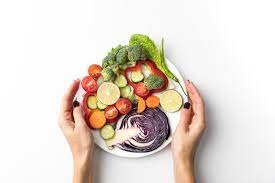
Raw Food Diet: Raw food advocates think that cooking destroys natural enzymes and nutrients in food, potentially causing health problems. This diet consists of eating raw, uncooked fruits and vegetables, as well as nuts and seeds. While it emphasizes entire, plant-based meals, it can be difficult to maintain over time and may result in nutritional imbalances, notably in terms of protein intake and vitamin B12 deficiency.
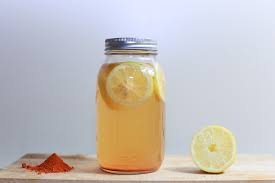
Master Cleanse (Lemonade Diet): The lemonade diet, also known as the master cleanse, is a short-term detox diet that usually lasts a few days to a week. It is considered the best detox for weight loss. It involves drinking a lemonade made with water, lemon juice, maple syrup, and cayenne pepper. The master cleanse is thought to aid in detoxing and weight loss, but it is deficient in critical nutrients and may not be suited for long-term use.
Elimination Diet: The elimination diet, unlike other detox diets, does not emphasize fasting or specific mixtures. Instead, it entails removing certain foods or food groups from the diet for a set amount of time, such as sugar, dairy, gluten, or processed foods. The purpose is to uncover food sensitivities or intolerances by gradually reintroducing the removed foods. Elimination diets can be beneficial for people who are suffering from digestive disorders or allergies and want to identify the food culprits behind their symptoms.
How to Follow a Detox Diet Plan Safely
Starting a detox diet is a personal decision, but it’s critical to consider safety and overall well-being throughout the process. Here are some crucial recommendations to help you safely embark on a natural detox cleanse:

Consult a Healthcare Expert: It is critical to consult with a healthcare expert, such as your doctor or a qualified dietitian, before beginning any detox diet. They can assess your personal health state, medication use, and any underlying medical conditions to determine whether a detox diet is safe and appropriate for you. This is especially crucial if you have chronic health problems or are using drugs.
Select a Practical Program: If you choose a detox diet program, do your research and choose one that is respectable and science-backed. Be wary of programs that make grandiose claims or promise speedy weight loss because they frequently lack scientific legitimacy. A reliable program should have a well-defined, evidence-based rationale for its approach.

Stay Hydrated: Staying hydrated is critical throughout a detox diet. Drinking enough water and other hydrating fluids prevents dehydration, stimulates the body’s natural detoxification processes, and aids in the removal of toxins. Herbal teas, infused water, and low-sodium vegetable broths can also help with hydration.

Choose Nutrient-Dense Foods: If your detox diet includes juices, smoothies, or liquid-based meals, choose nutrient-dense options. Freshly squeezed fruit and vegetable juices, as well as whole-food soups, can provide important vitamins, minerals, and antioxidants. For a well-rounded nutrient profile, make sure your intake includes a variety of colors and varieties of vegetables.
Note: There might be affiliate links mentioned here. We may receive a commission if you purchase a product through an affiliate link. There is no additional charge for you. Please do your own research before making any online purchases.

Pay Attention to Your Body: During the natural detox cleanse, pay special attention to how your body reacts. If you develop negative symptoms such as exhaustion, dizziness, nausea, or intense hunger, stop the program and consult your doctor. Everyone’s body is unique, and what works for one person may not work for another.

Ease Into and Out of the Detox: To reduce the shock to your system, transition into and out of the detox diet gradually. If you’re cutting back on solid foods, start by gradually cutting back on processed foods, sweets, and unhealthy fats in the days leading up to the detox. To avoid intestinal discomfort after the detox, gradually reintroduce solid foods.
Time Limit: Detox diets are not intended for long-term use. They are usually intended for short-term cleansing and should only be used for a few days to a week. Return to a balanced and healthy diet that includes a variety of food groups to suit your daily nutritional needs after completing the detox.
A well-planned detox diet includes making deliberate choices about which foods to include and which to avoid in order to support your body’s natural cleansing processes. Here are extensive instructions for including and avoiding items for a natural detox cleanse:
- Foods to Include
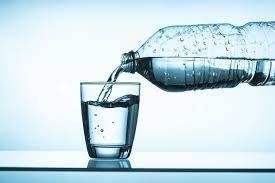
Water: Staying hydrated is critical throughout a detox diet. Water aids in all body activities, including waste and toxin disposal. Drink at least 8-10 glasses of water per day.

Fresh Fruits and Vegetables: Stock up on fresh, preferably organic, fruits and veggies. They are high in vitamins, minerals, and antioxidants, which can help the body neutralize toxic substances. Dark leafy greens, berries, citrus fruits, and cruciferous veggies such as broccoli and cauliflower are all good options.
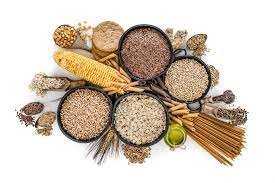
Whole Grains: Choose whole grains such as brown rice, quinoa, oats, and whole wheat products over refined grains. These grains are abundant in fiber, which assists digestion and helps keep blood sugar levels constant. Fiber also aids in the elimination of waste and poisons from the body.
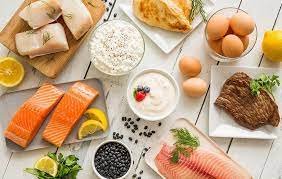
Lean Protein: Include skinless fowl, fish, tofu, and legumes such as lentils and chickpeas in your detox diet. Protein is essential for muscle repair and metabolic health. To limit your intake of saturated fats, choose plant-based proteins or lean animal proteins.
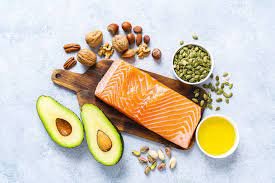
Healthy Fats: Include healthy fats from avocados, nuts, seeds, and olive oil. These fats are required for proper brain function, hormone production, and overall wellness. Anti-inflammatory omega-3 fatty acids are found in fatty fish such as salmon and walnuts.

Herbal Teas: Green tea, chamomile, and peppermint herbal teas can help with digestion, reduce inflammation, and provide a calming beverage option during your detox diet. Green tea, in particular, includes antioxidants called catechins, which may have detoxifying properties.
- Foods to Avoid

Processed Foods: Avoid processed foods that are high in sugar, salt, bad fats, and artificial additives. These can aggravate inflammation, impair gut function, and impede detoxification.

Alcohol: Alcohol adds to the workload of the liver, which is an important organ in detoxification. Avoid consuming alcohol throughout your detox diet to allow your liver to focus on ingesting toxins more efficiently.

Caffeine: Limit or avoid caffeine-containing beverages such as coffee, as caffeine can interfere with sleep patterns and lead to dehydration. Herbal teas can be a caffeine-free substitute.
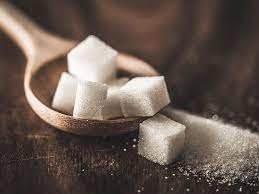
Sugar: Avoid sugary foods and beverages. Excess sugar consumption can cause blood sugar rises and inflammation. If necessary, use natural sweeteners such as honey or stevia in moderation.
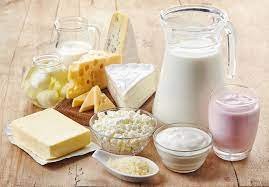
Dairy: Some people are sensitive to dairy products, which can cause intestinal pain. During a detox diet, it is best to avoid dairy products and instead use dairy-free substitutes such as almond or soy milk if necessary.
FAQs
What exactly is a detox diet?
A detox diet is a food regimen that is intended to remove toxins from the body, improve digestion, and improve general health. It usually entails a short-term, limited diet that focuses on liquids and particular nutrients.
Why do people opt for detox diets?
People choose detox diets for a variety of reasons, including detoxification, improved digestion, increased energy, weight loss, and overall wellness. These diets are regarded as a means of resetting the body and encouraging healthier habits.
Are detox diets beneficial?
The efficiency of detox diets is debatable. Although some research indicates benefits, overall scientific evidence is lacking. Detox diets may provide short-term benefits, but their long-term usefulness is debatable.
Are detox diets harmful?
When done appropriately and under professional supervision, detox diets can be safe. Extreme detox regimens, on the other hand, might be detrimental, resulting in vitamin deficits, dehydration, and other health problems.
What are the various types of detox diets?
Juice cleanses, water fasts, raw food diets, master cleanses, and elimination diets are all types of detox diets. Each category of these natural detox cleanses has its own set of guidelines and constraints.
Should I seek medical advice before beginning a detox diet?
Yes, it is strongly advised to get the advice of a healthcare expert, such as a doctor or qualified dietitian, before embarking on a detox diet. They can analyze your own health situation and provide advice to ensure that it is safe and appropriate for you.
What should the duration of a detox diet be?
Detox diets are often intended to be short-term, lasting anything from a few days to a week. Long-term detox diets can cause nutritional imbalances and other health problems.
What should be included in a detox diet?
Water, fresh fruits and vegetables, whole grains, lean protein, healthy fats, and herbal teas should all be included in a detox diet. These meals aid in detoxification as well as overall health.
What are the foods to avoid on a detox diet?
During a detox diet, avoid processed foods, alcohol, caffeine, excess sugar, and dairy products. These substances can obstruct detoxification and contribute to inflammation.
Can detox diets be maintained over time?
Detox diets are not meant to be used for an extended period of time. They are intended to be short-term cleanses that should be followed by a return to a balanced and nutritious diet in order to maintain overall health.
Conclusion
Detox diets have grown in popularity in recent years, but their effectiveness and safety are still being debated. While some research suggests that detox diets can improve liver function, reduce inflammation, and promote weight loss, others have discovered no significant benefits or even potential risks.
If you are considering a detox diet, it is critical that you do so safely and under the supervision of a healthcare professional. Choose a reliable detox program, remain hydrated, eat nutrient-dense foods, listen to your body, and don’t overdo it. Remember that detox diets are not intended to be long-term dietary plans and should only be used for a limited time.
Finally, keep in mind that our bodies have natural detoxification systems that work to eliminate toxins and waste products. Eating a good, balanced diet, drinking lots of water, exercising on a regular basis, and getting enough sleep can all help the body’s natural detoxification process and promote overall health and well-being.
Disclaimer: The information provided in this article is for educational purposes only and should not be considered as a substitute for medical advice. Consult a healthcare professional before implementing any home remedies or making significant changes to your lifestyle.






